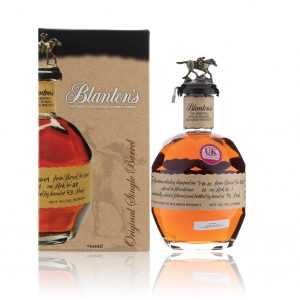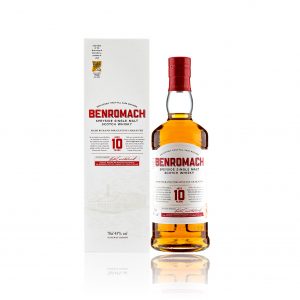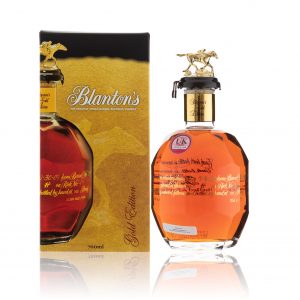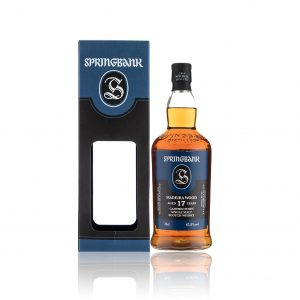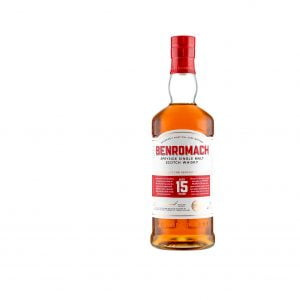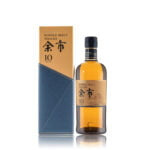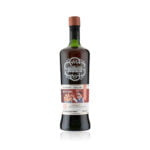Indian Whiskies
Despite India outwardly being one of the largest whisky drinking nations in the world, most domestically distilled “whiskies” are dominated by molasses-derived spirits, and are therefore according to EU legislation, not whisky at all. There are, however, notable exceptions to these Indian-made Foreign Liquors, especially the world-renowned Amrut that launched in India and Glasgow in 2004.
The single malt whiskies from this distillery, and others throughout the country, tend to be fruity and malty with a defined style all their own. Boasting general underlying notes of toffee and tropical fruit, Indian whiskies offer a youthful exuberance due to the unique environment in which they are produced.
If you are looking to explore single malts beyond those from the more traditional locations of Scotland, Ireland, and the US, Indian whiskies offer the perfect solution. Try your first Indian dram today by placing your order with The House of Whisky below.
Browse Scotch
Browse Whiskies
- The History of Whisky in India
- The Making of Indian Whisky
- The Flavour Profile of Indian Whiskies
- Categories of Whisky
- Our Indian Whisky Recommendation - Amrut Fusion
Scotch whisky found its way to India in the 1800s after being introduced to the country’s populace by the British Raj. The widespread manufacture of Indian whisky came after the establishment of the first distillery in the 1820s by a British man who brought copper pot stills from Scotland intending to take advantage of the spring water in the Kasauli region.
India’s journey to high-end whisky production truly began in the 1980s, with Amrut being the distillery that changed the game. Amrut started the same way as its competitors, blending grain-based mash with molasses; however, the company’s chairman recognised the potential for a true connoisseur’s whisky and started sourcing barley from farmers in 1982. By the end of the decade, Amrut had distilled their inaugural batch of single malt, despite the limited demand in the domestic product.
Over 20 years later, Amurt finally released the first single malt whisky produced in India to worldwide acclaim. They continued to innovate the single malt field, most recently creating the Spectrum series using hybridised wood from Spain, the US, and France, as well as wood from ex-sherry casks. Amrut, as well its counterpart Paul John, have gone on to win several accolades from around the world, cementing India’s place in the single malt whisky world.
Indian whisky is produced similarly to Scotch, with the most notable exception being the difference in temperature. A single year of maturation in India is similar to three in Scotland due to India’s higher tropical temperatures, which means that many Indian malts are younger. To be sold as whisky in the EU, it still has to be distilled for three years; however, Indian malts with age statements with high age statements are less likely to come by.
Indian whiskies also use six-row barley rather than two rows, which is said to impart a spicier character onto the malts. This barley grows exclusively in the north of India near its borders with China, Nepal, and Pakistan.
Like Scotch, Indian whiskey is still made in pot stills and oak casks, with the peated malts made using imported Scottish pre-peated barley.
Indian whiskies tend to be fruitier than malts from other countries across the world. Specifically, Indian malts feature notes of fruits that are not found in Scotland, including banana, mango, and pineapple. The most common flavour notes of Indian whiskies include:
- Caramel.
- Cinnamon.
- Honey.
- Oak.
- Toast.
- Treacle.
The body of these malts tends to be lighter and fresher due to the shorter length of time they spend in the casks.
Most of the 189 million cases of whisky produced in India is not what we would consider whisky since it is made from molasses, which makes it thick and very sweet. Whisky by traditional Scotch standards, as produced by Amrut amongst others, is considered a craft in India and only accounts for only 1% of whisky consumed in India.
The Amrut Fusion is made with a mix of 75% unpeated Indian barley and 25% peated Scottish barley that has been distilled separately and aged for four years before being brought together at the end of the distillation process. This dram has a rich, fruity character with an unexpected smoky finish with hints of Earl Grey and sea spray on the nose. A truly rewarding spirit every whisky drinker is sure to enjoy.
Browse this whisky and other whiskies from the distinguished Amrut distillery at The House of Whisky here.
Showing all 4 results
-

Amrut Double Cask 3rd Edition (2017 Release)
£160.00 Add to cart -
Sale!
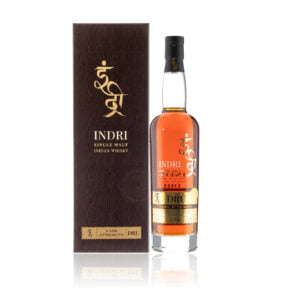
Indri Drú Ex-Bourbon Cask Strength 57.2%
Original price was: £199.99.£149.99Current price is: £149.99. Add to cart -
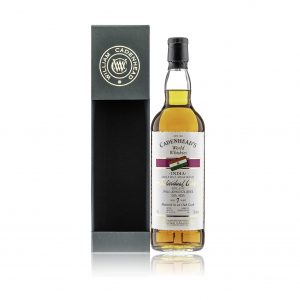
Paul John 7 Year Old Cadenhead’s
£110.00 Add to cart -

Paul John 9 Year Old Cadenhead’s World Whiskies
£145.00 Add to cart

